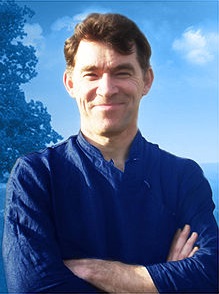Guest writer for Wake Up World
Over the last year or so, I have published a number of posts about unusual phenomena that occur around the time of death. I’ve written about terminal lucidity, when people with severe cognitive impairment suddenly gain clarity and awareness shortly before death.
[pro_ad_display_adzone id=”110028″]
In the same post, I discussed “deathbed visions,” when dying people appear to see visions of deceased relatives or friends. I’ve also written about near-death experiences, when people are physiologically “dead” for a short time but experience a continuation of consciousness.
In this post, I would like to discuss another remarkable type of “mortality experience”: when people precisely predict their own death. I’ll begin by discussing one remarkable historical case.
The Case of Emanuel Swedenborg
The 18th century Swedish scientist and spiritualist Emanuel Swedenborg was a renaissance man with a bewildering array of skills and interests. During the first part of his life, Swedenborg wrote scientific treatises on astronomy, chemistry, geology and anatomy. In the area of anatomy alone, his insights and discoveries included the existence of cerebro-spinal fluid and its circulation through the body, the existence of brain cells and the connection between the motion of the brain and respiration. As an inventor, Swedenborg put forward plans for early versions of a submarine, aircraft, a car and even a machine gun.
Due to his work, Swedenborg gained immense respect from his peers, including the King of Sweden. If he had confined himself to these areas, he would probably be famous as an early pioneer of science and technology, an enlightenment figure like Newton or Kant, or perhaps as a Scandinavian equivalent of Leonardo da Vinci.
However, midway through his life Swedenborg began to experience trance-states in which he believed he conversed with angels and was shown visions of heaven and hell. Unsurprisingly, his scientific contemporaries thought he had gone insane. However, Swedenborg remained outwardly stable and rational, and documented his explorations of the spirit world with the same detached precision as his scientific tracts.
In 1772, the theologian and evangelist John Wesley received a letter from Swedenborg, informing him that “I have been informed in the spiritual world that you have a strong desire to converse with me; I shall be happy to see you.” Wesley was shocked, as he wanted to meet Swedenborg, but had told no one about it. Wesley wrote back to Swedenborg, stating that he was about to leave on a six months’ speaking tour, but that he would be happy to meet him afterwards. Swedenborg replied that this would unfortunately be too late, as he was due to pass away the following month, on 29th March. And Swedenborg did pass away on that date. His servant girl also confirmed that he had predicted the date of his death.
My Father’s Experience
Swedenborg’s story has special resonance to me, as my father also apparently predicted the date of his death. My father died in 2019, at the age of 79. He had Parkinson’s disease and was quite weak and a little confused, but no one expected him to die at that particular time. A week before his death, he told a friend, “I’ve found out when I’m going to die – it will be a week today, next Thursday.”
His friend was shocked, but as my father didn’t seem seriously ill, he didn’t pay heed to his comments. My dad had only recently woken up after a doze, so his friend assumed he was more confused than normal.
[pro_ad_display_adzone id=”110030″]
Then my dad continued, “I’ve seen the book where all the dates of people’s deaths are written down. I can find out the date of your death if you like.”
“Oh no, don’t worry,” said his friend. “I’d rather not know!”
My dad’s friend was certain that he was in a state of delirium. But a couple of days later, my dad’s health took a sudden turn for the worst. He was diagnosed with pneumonia and died on Thursday, just as he had predicted.
Near Death Experiences
The idea that the date of death is fixed is also suggested by some reports of near-death experiences. Occasionally, people report meeting guides or deceased relatives who inform them that they must return to their bodies as it is “not your time yet.” For example, in a case collected by the NDE researcher (and physician) Jeffrey Long, a woman had an NDE during childbirth, after her cervix was torn. She described encountering beings who showed her visions of her future life, who told her that “there is a time for me to die, and that particular time when I was giving birth was not it.”
I admit that I find these experiences bewildering. Clearly, they contradict our normal linear view of time, implying that in some sense the future is already determined, or even already exists. As I’ve noted in relation to my previous posts, perhaps the only firm conclusion we can draw from such experiences is that reality is much stranger than we can conceive. Like any other animal, our awareness is selective and limited. There must be ranges of phenomena and forces beyond those we normally perceive, so that in the wise words of Shakespeare, “there are more things in heaven and earth than are dreamt of in [our] philosophy.”
Originally published at Psychology Today and reproduced with permission.
About the author:
Steve Taylor is a senior lecturer in Psychology at Leeds Beckett University, UK. His latest books in the US are The Calm Center and Back to Sanity: Healing the Madness of the Human Mind. He is also the author of The Fall, Waking From Sleep, and Out Of The Darkness. His books have been published in 19 languages. His research has appeared in The Journal of Transpersonal Psychology, The Journal of Consciousness Studies, The Transpersonal Psychology Review, The International Journal of Transpersonal Studies, as well as the popular media in the UK, including on BBC World TV, The Guardian, and The Independent.
Connect with Steve at StevenMTaylor.com.
[pro_ad_display_adzone id=”110027″]



